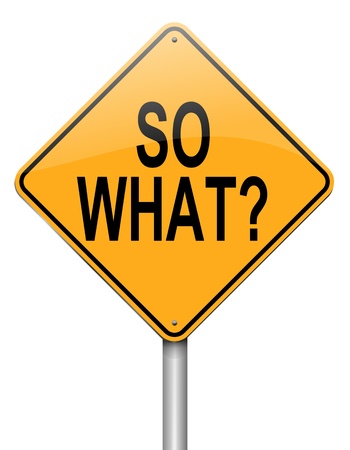 Many attorneys who believe that they have controlling precedent on their side gleefully approach appellate briefs with the strong conviction that an appeal to the law will cause truth and justice to rain down and the trial court’s incorrect decision to be swept away in the ensuing deluge. The simple truth, however, is that courts follow their own precedents only when they care to do so. If a court doesn’t like your client, your case or even you, it will ignore your arguments, no matter how compelling. This fact should force you to consider how to make the court want to follow its precedents or, if the law is against you, ignore them.
Many attorneys who believe that they have controlling precedent on their side gleefully approach appellate briefs with the strong conviction that an appeal to the law will cause truth and justice to rain down and the trial court’s incorrect decision to be swept away in the ensuing deluge. The simple truth, however, is that courts follow their own precedents only when they care to do so. If a court doesn’t like your client, your case or even you, it will ignore your arguments, no matter how compelling. This fact should force you to consider how to make the court want to follow its precedents or, if the law is against you, ignore them.
In the words of the Seventh Circuit:
Where possible, the emphasis should be on reason, not merely on precedent, unless a particular decision is controlling. A few good cases on point, with a sufficient discussion of their facts to show how they are relevant, are preferred over a profusion of citations.
Practitioner’s Handbook for Appeals to the United States Court of Appeals for the Seventh Circuit, § XXII (2014 Edition) (Emphasis added). In the words of one commentator, “What this means, of course, is that judges, especially appellate judges, will do what they damn well please.” Ralph Adam Fine, The “How-To-Win” Appeal Manual, p. 1 (2000).
To do this, you should invite the court to look at the bigger picture. Here are several suggestions:
- Remind the court why the rule, statute or governing precedent existed in the first place:
Plaintiff contends that his suit for intentional infliction should proceed even in the absence of a physical manifestation of that distress. The Court should not consider his expansive theory because the law permits recovery in the most unusual circumstances when a plaintiff’s distress is severe. Hoy v. Angelone, 456 Pa. Super. 596, 691 A.2d 476, 482 (1997). If no physical manifestation were required, then juries might award damages for only fleeting and unverifiable distress.
- Appeal to the court’s reluctance to create new causes of action or new defenses never before recognized:
The premise of all these claims is that the University and its administrators had a legal obligation to protect plaintiffs from the consequences of a police investigation—by quelling media coverage of the case, preventing campus protests, and even interceding to stop the investigation. That premise is invalid, and the Complaint should be dismissed.
Carrington v. Duke University.
- Appeal to the court’s desire to do the right thing:
As the Commission explained, the F-Word is effective when used to intensify or insult precisely because it has an offensive sexual connotation. Moreover, fine points of the distinctions between denotations and connotations may be lost on children seeking an explanation of the word’s meaning from their parents.
FCC v. Fox.
- Warn the court that it should not go down a “slippery slope.” If necessary, create a “parade of horribles”:
The anti-solicitation ordinance under review bars individuals from “stand[ing] on a street or highway and solicit[ing], or attempt[ing] to solicit, employment, business, or contributions from an occupant of any motor vehicle.” If this Court were to uphold the ordinance, the City could use it to prosecute:
- children selling lemonade on the sidewalk in front of their home,
- Girl Scouts selling cookies on the sidewalk outside of their school,
- school children shouting “carwash” at passing vehicles,
- university students imploring donations to disaster relief funds,
- signbearers on sidewalks seeking patronage or offering handbills even though their conduct does not pose a traffic hazard,
- sidewalk food vendors from advertising their wares to passing motorists,
- a motorist who stops, on a residential street, to inquire whether a neighbor’s teen-age daughter or son would be interested in performing yard work or babysitting.
Notice the use of the “broccoli horrible”:
An individual’s decision to self-insure, I have explained, is an economic act with the requisite connection to interstate commerce. [citation omittted] Other choices individuals make are unlikely to fit the same or similar description. As an example of the type of regulation he fears, The Chief Justice cites a Government mandate to purchase green vegetables. [citation omitted] One could call this concern “the broccoli horrible.” Congress, The Chief Justice posits, might adopt such a mandate, reasoning that an individual’s failure to eat a healthy diet, like the failure to purchase health insurance, imposes costs on others.
Nat’l Fed’n of Indep. Bus. v. Sebelius, 132 S. Ct. 2566, 2624 (U.S. 2012)
For more information on the “slippery slope” and “parade of horribles” style of argumentation, see: Sternglantz, Ruth, Raining on the Parade of Horribles: Of Slippery Slopes, Faux Slopes, And Justice Scalia’s Dissent in Lawrence v. Texas, 153 Univ. of Pa. L.R. 1097 (2005); Eugene Volokh, The Mechanisms of the Slippery Slope, 116 Harv. L. Rev. 1026 (2003).

Recent Comments